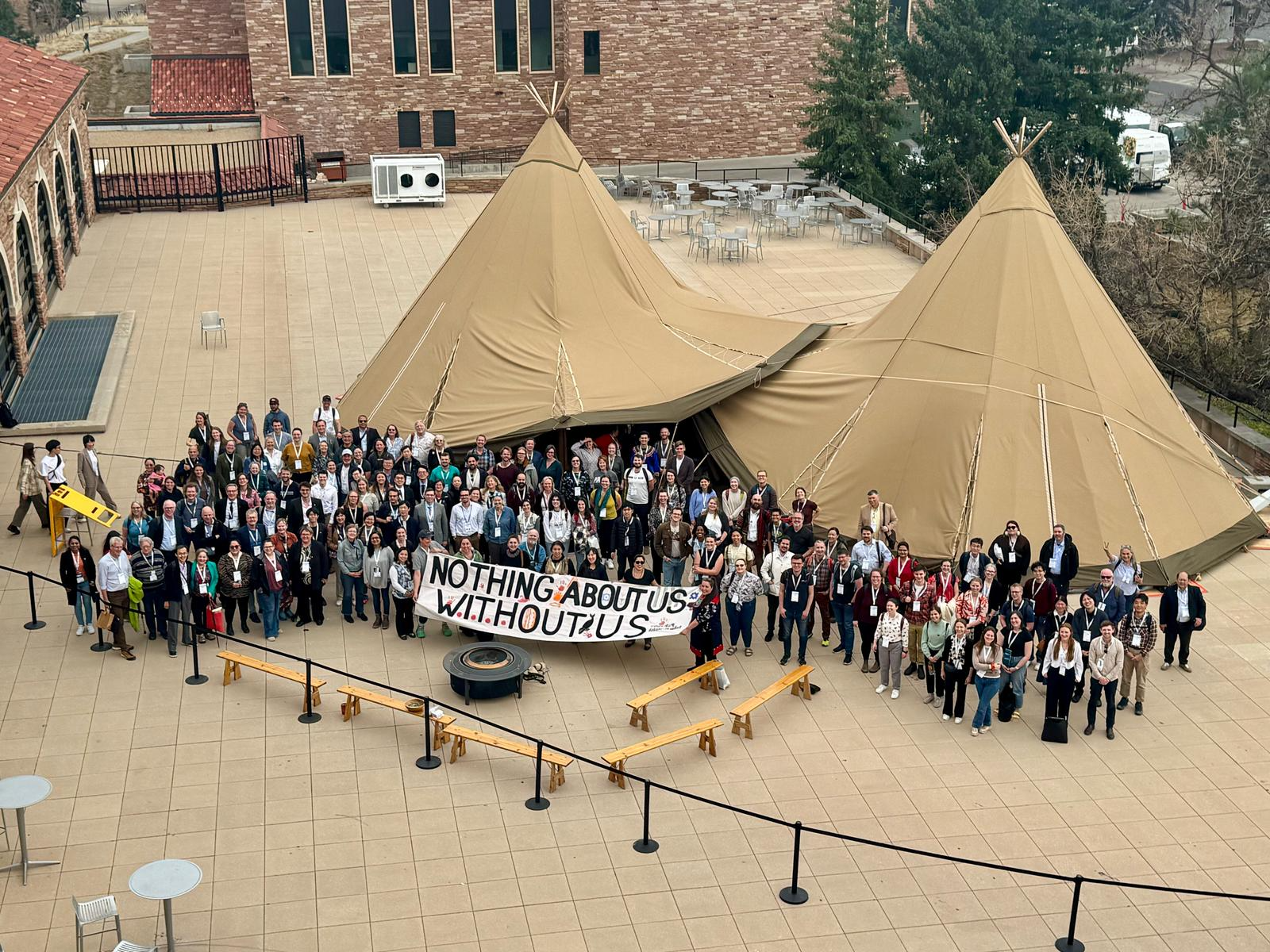The statement below was written by Indigenous participants attending the ICARP IV Summit in Boulder, Colorado, USA from 25 – 28 March 2025, and read during the Closing Ceremony of the ICARP IV Summit on 28 March 2025. The official ICARP IV Summit Statement was issued independently on 28 March 2025 by the ICARP IV International Steering Committee and the ICARP IV Summit Local Organising Committee.
 "We, the Indigenous Peoples from the Arctic region, united by our deep connection to ancestral lands and waters, feel compelled to address urgent concerns about our future. As everyone knows, the Arctic has been our homeland for thousands of years. Our knowledge is central to our survival, to the integrity of our communities and to the delicate balance and biodiversity of the region.
"We, the Indigenous Peoples from the Arctic region, united by our deep connection to ancestral lands and waters, feel compelled to address urgent concerns about our future. As everyone knows, the Arctic has been our homeland for thousands of years. Our knowledge is central to our survival, to the integrity of our communities and to the delicate balance and biodiversity of the region.
The ever-increasing external pressures on our communities and the natural world upon which we depend are immeasurable. For example, unregulated resource extraction, loss of biodiversity, increased shipping, and the climate crisis. They are compounded by present attempts to diminish our distinct status as Indigenous Peoples with inherent rights affirmed in international and national laws, policies, and constitutions.
Therefore, we extend the following requests to all engaged in Arctic research in order to prioritize and accommodate the inclusion of our distinct status and our right to “maintain, control, protect and develop” our knowledge through fair and equitable co-production of knowledge. We seek to promote the interconnected nature of our knowledge, culture, arts, language, and identity in addressing and responding to Arctic change.
We appreciate the past contributions of IASC and Indigenous Peoples. We are grateful for the space to actively participate in the plenary sessions, Research Priority Teams, and related processes. Yet, more must be done to increase the direct engagement of Arctic Indigenous Peoples to guide the ever-increasing research agendas implemented across our Arctic homelands.
Our effort to Indigenize Arctic research is sourced in our collective right to self-determination. This distinct political right is recognized as a prerequisite for the exercise and enjoyment of all other human rights. Therefore, scientists must also acknowledge and advocate for our self-determination in Arctic research.
We have consistently stated that our knowledge will improve science, but we must be able to participate on an equal basis and consistent with both moral and legal imperatives that often challenge researchers, universities, funding agencies, and organizations.
Regarding our future participation, we call for a continuing formal role within the ICARP process or more broadly a permanent role within IASC itself, one collaboratively designed with Indigenous Peoples. The same consideration should be given to the International Polar Year (2032-33). This may require adjustment of procedural aspects and removal of structural, financial, and other barriers. We remain concerned about the compressed time constraints for our involvement; language barriers; and other hurdles that stifle our direct role.
Intersecting issues include safeguarding data sovereignty and supporting youth involvement; and addressing the lack of compensation for Indigenous Knowledge Holders and Indigenous researchers. There are many more concerns surrounding Indigenous Knowledges, but it is our hope that, through our direct participation, we can alter the course of Arctic research towards equitable futures for Indigenous Peoples and all of humanity.
In this way, we can help to shape actual research objectives and identify concrete steps to embed Indigenous Knowledge, equitable co-production of knowledge, Indigenous values, and our priorities within research frameworks and outcomes.
In conclusion, for decades, we have “invited you to our table” and underscored the value of our “intricate knowledge.” Through the manifestation of our rights, we can help all others to ensure sustainable, healthy, and vibrant Arctic communities. We must be able to determine and define the well-being of the Arctic from our own perspectives. We must be able to exercise our right to free, prior, and informed consent in relation to Arctic research. We share our requests within the framework of our collective human rights. These rights serve as our standards, our lens, our desires, and our self-determination."
